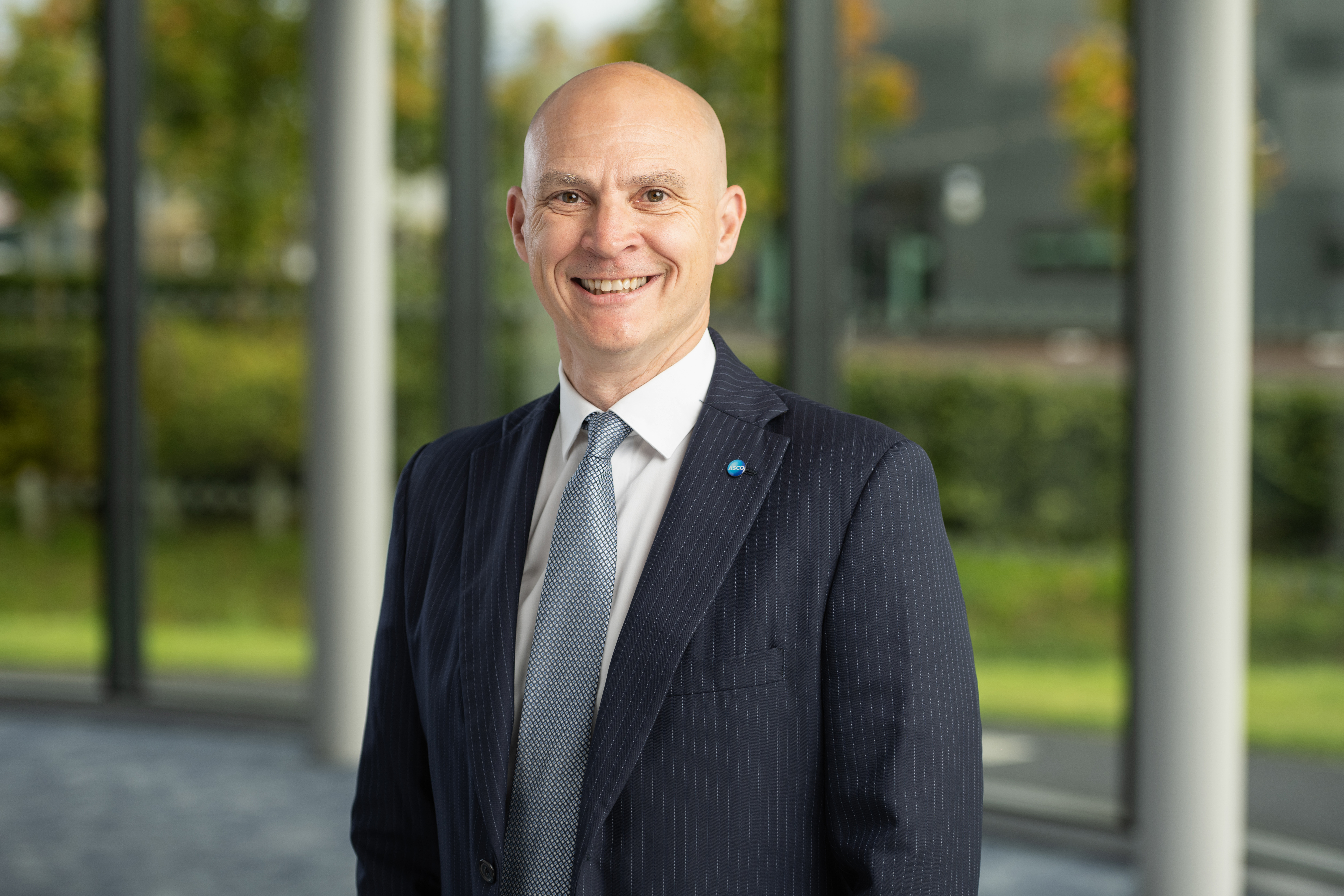
Business has boomed for logistics firm ASCO since it was bought by the British private equity company Endless a year ago. ASCO said at the time that the acquisition would reinforce its position in renewable energy.
Growth in general though is ASCO’s watchword and it has already seen significant increases in profitability since the acquisition. ASCO aims to boost profitability worldwide by a further 40% over the next five years, primarily through new energies and territorial expansion. Meanwhile it has halved its greenhouse gas emissions since 2019. ASCO’s goal is to develop initiatives to enable the company to meet net zero greenhouse gas emissions worldwide by 2040.
Since the acquisition it has had a new CEO, Mike Pettigrew, who took up the reins in October. Eight months later, he created a new role for head of new energy and net zero, and appointed Thuy-Tien Le Guen Dang to the position.
Previously she had been the group’s sustainability and marketing manager. Her new role is to direct the company’s positioning for global growth in new energy: wind power, clean fuels and carbon capture and storage.
“The two aspects of my role are inter-related. The energy transition is all about getting a low carbon energy system. There are huge opportunities for ASCO in the new energy markets as a key enabler with proven expertise in the delivery of projects from logistics consultancy through to operational delivery and coordination,” Thuy-Tien said in a June press release.

“Thuy-Tien has already demonstrated her passion for our net zero aspirations and the direction of our business growth. We can think of no one better to take a leading role in supporting ASCO as it looks forward to transformational times ahead,” said Mr Pettigrew.
Excluding its fuels trading division, half of ASCO’s revenues come from outside the UK. Its good relationships abroad with producers have helped it to win contracts at home in the UK. ASCO landed a contract extension with the UK major BP for its UK assets earlier this year, following a five-year contract that started in late 2023 in Trinidad & Tobago, where it is the biggest gas producer. There, ASCO will provide a supply base and pipeyard management services for all 16 of BP’s offshore locations. “We can provide support in the form of end to end logistics during all phases of BP's projects,” said Tony Wright, who has been group CFO since July 2023.
He returned to the UK to take up the job after a spell abroad and says the time has flown by since then. He described the job as a “fantastic opportunity” and part of the appeal was the company’s “safety, service and sustainability” motto.
For BP’s and TotalEnergies’ UK businesses, ASCO will support each operator in northeast Scotland. ASCO will leverage its service lines from quayside operations, materials management, ship agency, road transport, aviation and environmental services.
Teesworks supports transition
Also In June, ASCO landed a logistics contract with Teesworks, the largest of the UK freeports. It will play a significant part in the energy transition.
Teesworks is being developed as an integrated energy hub and will support new energies such as hydrogen, CCUS and offshore wind projects, including monopile manufacturing by SeAH Wind. “We definitely want a position in this region. A lot of projects are moving towards completion and awaiting final investment decisions,” said Mr Wright.
Mr Pettigrew said: “The South Bank Quay is a flagship project for ASCO, propelling us along the right track right at the start of 2024, en route to achieving our future goals. It confirms and reinforces our intention to make significant investment into increasing our footprint in the new energies sector over the coming years.”
The work, which will include quayside planning and scheduling, operations co-ordination, vessel scheduling, stevedoring and internal distribution services, will focus on Teesworks’ South Bank Heavy Lift Quay, which incorporates a new 450-metre quay to service the offshore energy sector.
“Teesworks is an incredibly visionary part of the growth plan. Billions have been invested and the customs-free zone covers 4,500 acres. It has already drawn in a vast amount of yellow goods,” says Mr Wright. The planning and construction of such an operation is repeatable: what he calls ‘a shorebase in a box’: an end-to-end logistics system that can be repeated elsewhere. SeAH will assemble the monopiles – the pillars of a wind turbine generator there.
Teesworks' contract with ASCO means that they will be employing 65 people at Teesworks in total, but Mr Wright says that each job will have the potential to create hundreds of indirect jobs.
And earlier this year, ASCO won a contract with Centrica Energy Storage (CESL) to manage its warehousing, waste management and logistics services. There could be a lot more to come as CESL plans to invest up to £2bn over the coming decade to redevelop the Rough field offshore East Yorkshire and make it hydrogen ready. The former gas field was converted into the UK’s biggest gas storage facility offering seasonal security and it is now seeing further upgrades to improve market stability.
A foot in both camps
Thuy-Tien Le Guen Dang says the company is diversifying – while keeping a strong position in the oil and gas market.
ASCO is taking a leadership position in realising the energy transition. This is not without cost but supportive clients have helped. Switching from diesel to hydrotreated vegetable oil for its fleet of vehicles has pushed up operating expenses – it costs £500k/ year extra – but some operators accept this as a necessary cost of doing business.
But she can see the risk that the decline of oil and gas will occur faster than the growth of new energies. This risk is greater as renewable energy projects generally slip back through lack of funding or firm government policies.
“We need to retain all the skills and competencies when very few projects are moving forward” she says. “We must ‘mind the gap’. Not everyone is at the same place but there are, in an emerging market, opportunities where we will position ourselves. There is a strong value proposition to optimising CCUS and hydrogen but the supply chain needs to be competitive to attract investment and provide confidence in UK projects.
“The carbon border adjustment mechanism will be helpful as it is a huge opportunity to capture emissions, including those from the European Union that may be transported to the UK, pending resolution of the legal situation on handling waste products,” she says.
Projects in some low-carbon sectors, such as CCUS, have been slow to get off the ground as developers need certainty of supply and emitters need certainty of storage or utilisation; a route to market of their CO2 and both need to see the respective statebacked guarantees. The new government has a mandate to unlock investment to push projects to final investment decisions. The hope for ASCO and the dozens of companies with projects in limbo is that the years of testing, planning, negotiating and waiting will soon yield final investment decisions.
You can find out more about ASCO's experience in renewables here

